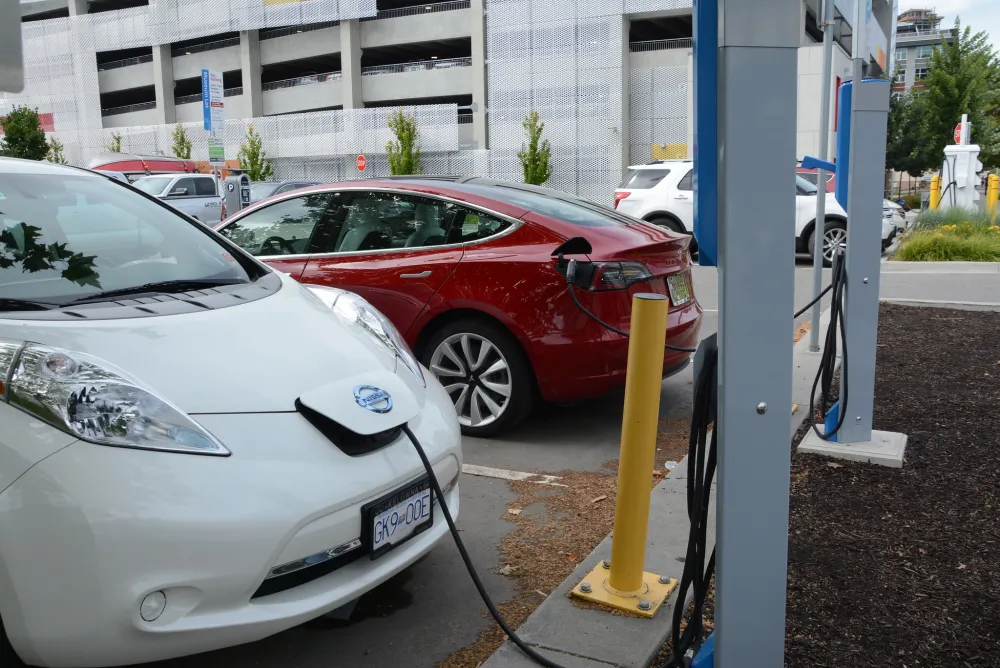VANCOUVER / MUSQUEAM, SQUAMISH & TSLEIL-WAUTUTH TERRITORIES — Karen Tam Wu, Tahra Jutt and Tom-Pierre Frappé-Sénéclauze at the Pembina Institute made the following statement today in response to the setting of sectoral targets by the B.C. government:
″Sectoral targets are an essential tool in tracking B.C.’s progress toward building a clean economy and safe climate; it’s a model for all of Canada. While targets alone won’t reduce emissions, they give us a clearer picture of opportunities and challenges to reduce carbon emissions from specific sources. The targets show that we need to be ambitious with current policies — including reinstating the carbon tax increases — and ensure clean energy production and use across the province aligns with B.C.’s goals of creating clean jobs, reducing carbon emissions by 40% by 2030, and setting B.C. up to be net-zero by 2050.″
— Karen Tam Wu, B.C. director of the Pembina Institute, and member of B.C.’s Climate Solutions Council
″Today’s sectoral targets announcement is a positive step toward putting real numbers against the emission reductions needed in specific sectors. Emissions from the oil and gas and transportation sectors are going up, accounting for over 60% of B.C.’s emissions. Strengthening existing policies to reduce methane emissions, shift to zero-emission vehicles, and reduce the carbon footprint of fossil fuels as we transition to renewable energy will create clean jobs, support a resilient recovery, and help meet our climate goals.″
— Tahra Jutt, director, B.C. clean economy
″Achieving a 2030 reduction target from the building sector set above 60% will necessitate rapid electrification of most natural gas heated homes and buildings in B.C. More than 80,000 dwellings will need to be upgraded each year with high efficiency heat pumps. Paired with upgrades to make our homes less drafty, better insulated and ventilated, this will increase the durability and safety of our homes, keeping them comfortable through extreme heat and deep freezes, while improving indoor air quality. It will also create 22,000 new clean jobs, and up to $50 billion in economic growth. B.C.’s next mega-project is a win-win-win for climate, health, and economy.″
— Tom-Pierre Frappé-Sénéclauze, director, building and urban solutions
Quick facts
2030 sectoral carbon reduction targets (from 2007 levels) announced by the B.C. government:
- transportation: 27% to 32%
- industry: 38% to 43%
- oil and gas: 33% to 38%
- buildings and communities: 59% to 64%
Sectoral emissions in B.C. (2018 provincial inventory)
- transportation: 27.7 Mt
- industry: 12.9 Mt
- oil and gas: 13.3 Mt
- buildings and communities: 14.0 Mt
[30]
Contact
Sarah MacWhirter
Director, Communications, Pembina Institute
416-389-7465
Background
Submission: Principles for sectoral emissions targets in B.C.
Report: How to Get Net-Zero Right: Principles, tools and steps for safe, inclusive net-zero pathways
Report: A resilient economy and safe climate: Our vision for B.C.
Op-ed: Three climate priorities for B.C.’s new government
About the Pembina Institute
The Pembina Institute is a non-profit think-tank that advocates for strong, effective policies to support Canada’s clean energy transition. We have offices in Vancouver, Calgary, Edmonton, Ottawa and Toronto. Learn more: www.pembina.org




